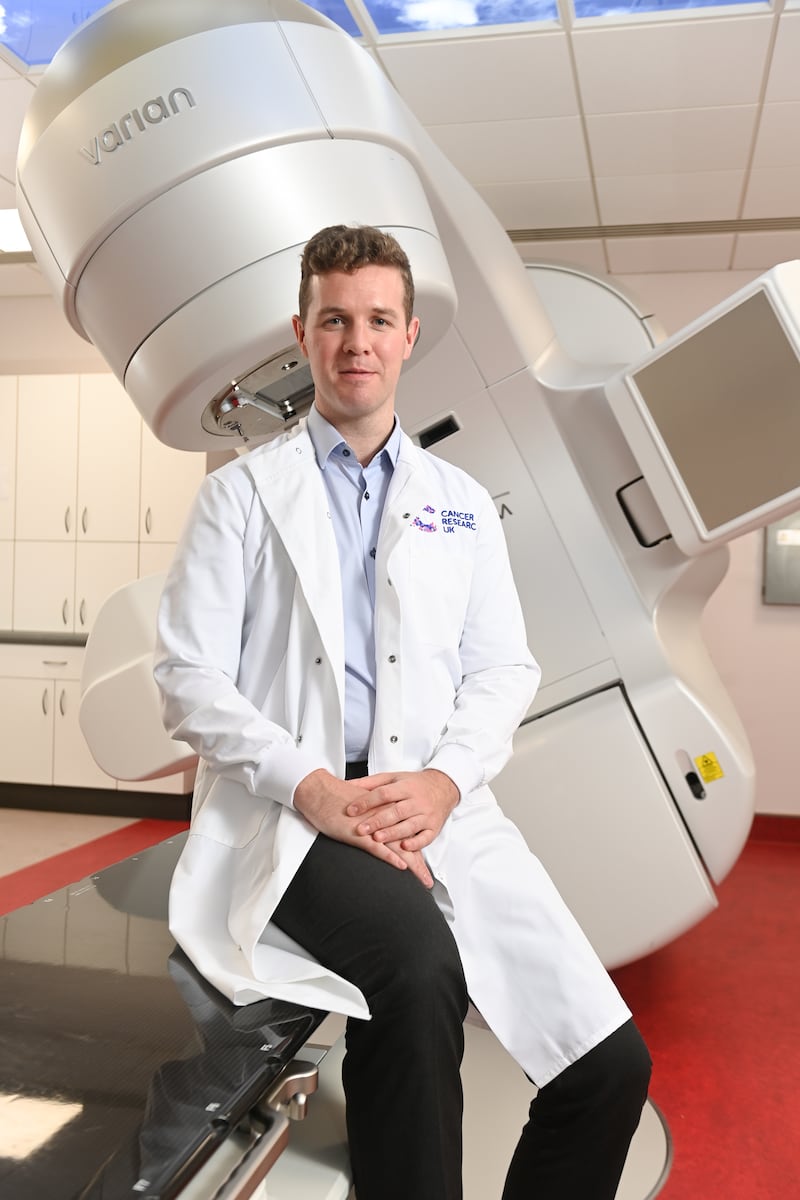A Belfast doctor has been awarded a £35,000 research grant to better protect the hearts of cancer patients undergoing radiotherapy.
The grant from Cancer Research UK for Dr Gerard Walls (34) from Magherafelt will look at whether medicines regularly used for cardiac treatment could maintain a healthy heart for some people undergoing cancer treatment.
“Preliminary results are encouraging, showing that we may be able to use a heart medicine to help keep our patients’ hearts safe during radiotherapy to the chest,” Dr Walls said.
“I am delighted to have received this funding from Cancer Research UK, which means we will be able to do further testing of this medicine, and ultimately find out if this is a treatment we should give to patients with lung cancer.”
- Co Antrim woman raises £9k for potentially life-saving heart scans for 100 school pupils following death of brother to SADSOpens in new window
- Family of Co Antrim mother ‘simply blown away’ by £20,000 fundraiser support for treatment not available on NHSOpens in new window
- ‘I gave her CPR and was able to restart her heart’ - Belfast man recalls how he tried to save his wife (34) after she collapsed from undiagnosed heart conditionOpens in new window
He explained that radiotherapy is the “gold standard treatment” for lung cancer for around 12,000 cancer patients across the UK, as most are unable to have an operation as they are too unwell, or a tumour is too difficult to access.
“There is a small risk that when the cancer is near to the heart, radiotherapy can cause some damage for some patients, even with the really accurate treatment that we have available at both cancer centres in Northern Ireland,” he said.
“There is currently a lack of options for protecting the heart, but this research might lead to a new useful, safe and cost-effective option. If we confirm the treatment to be useful, we will proceed to research in patients.
“Ultimately, we hope to improve the cardiac health of patients with lung cancer and this could also help patients with other types of tumours inside the chest too, such as oesophageal cancer.”

Welcoming the news was breast cancer survivor Andrea Graham (58) from Bangor, who suffered cardiac problems during her own cancer treatment.
First diagnosed in 2005, she needed a mastectomy, chemotherapy and radiotherapy.
Devasted when the cancer returned five years later, she felt unable to face treatment again until a fellow cancer survivor persuaded her to carry on.
She needed another mastectomy and surgery to remove her ovaries, and has been cancer free for 14 years.
Suffering from heart issues in recent years, which she was told may have been due to her intensive cancer treatments, she is able to manage it with medication.
“I definitely would have accepted a protective tablet for my heart during my treatment if Dr Walls’ current research had been ongoing in 2005–2010,” she said.
“It highlights just how important it is to continue supporting research, enabling further advances to be made.”
Preliminary results from Dr Walls and his colleagues- who splits his time between the Northern Ireland Cancer Centre and the Patrick G Johnston Centre for Cancer Research at Queen’s University Belfast - will be presented at the leading European radiotherapy conference this summer in Glasgow, with the full results available in early 2025.
He is also hopeful that the research may also eventually help breast cancer patients to protect their hearts.
Further information is available at www.cancerresearchuk.org.








